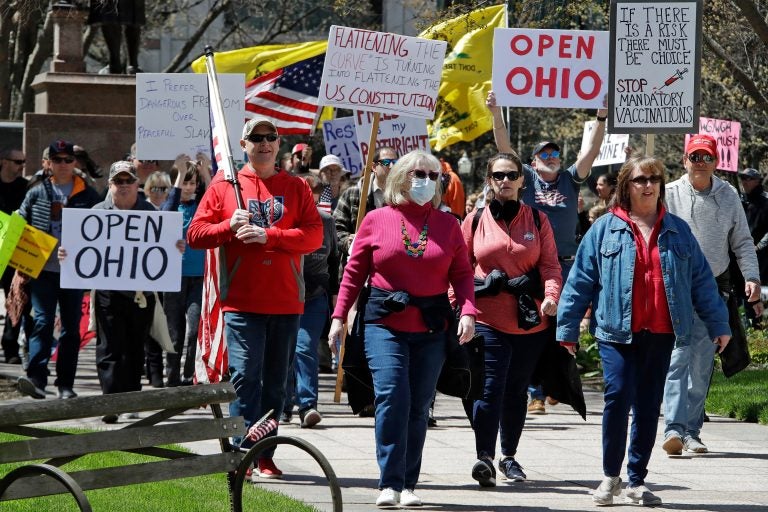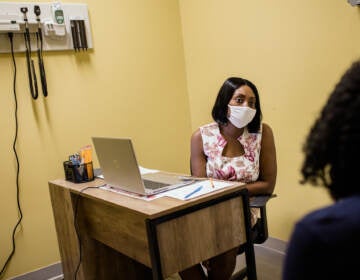Public Health and Trust
Listen 50:14
This Monday, April 20, 2020 photo shows protesters gathering outside of the Ohio State House in Columbus, Ohio, to protest the stay home order. Legislative testimony made Wednesday, Feb. 17, 2021 in support of a GOP-backed effort to limit public health orders made by Ohio's governor was removed from YouTube after the service deemed it contained COVID-19 misinformation. The Google-owned platform said it removed content that was uploaded this week to The Ohio Advocates for Medical Freedom channel for violating the company's terms of services. (AP Photo/Gene J. Puskar, File)
Over the past year, public health officials went from being the people who nudge us not to smoke, not to drink and drive, and to eat our veggies, to being a highly visible arm of government involved in calling a lot of the shots: which businesses could stay open and which had to close; who could go to work or be in school; ordering people to cover their noses and mouths. Public health became powerful. Many people looked to them to keep all of us safe — others have felt suspicious and resentful. Like — who are these people to tell us what to do? To restrict our rights? Can we trust them? Trust has become a major issue of our time — trust in information, in government, in science, and in public officials.
Last week, we explored scientific research and trust. On this episode — the second part of our deep dive into trust — we look at public health, and how they talk to us, the public. What gets people’s attention and cooperation? What creates resentment and rebellion? Do public health officials have an obligation to be totally transparent — or to do whatever it takes to keep the public safe?
Also heard on this week’s episode:
- We talk with public health historian Howard Markel about the connections between public health and what used to be called “vice,” and why public health messages sometimes sound like they have moral undertones.
Segments from this episode
WHYY is your source for fact-based, in-depth journalism and information. As a nonprofit organization, we rely on financial support from readers like you. Please give today.






